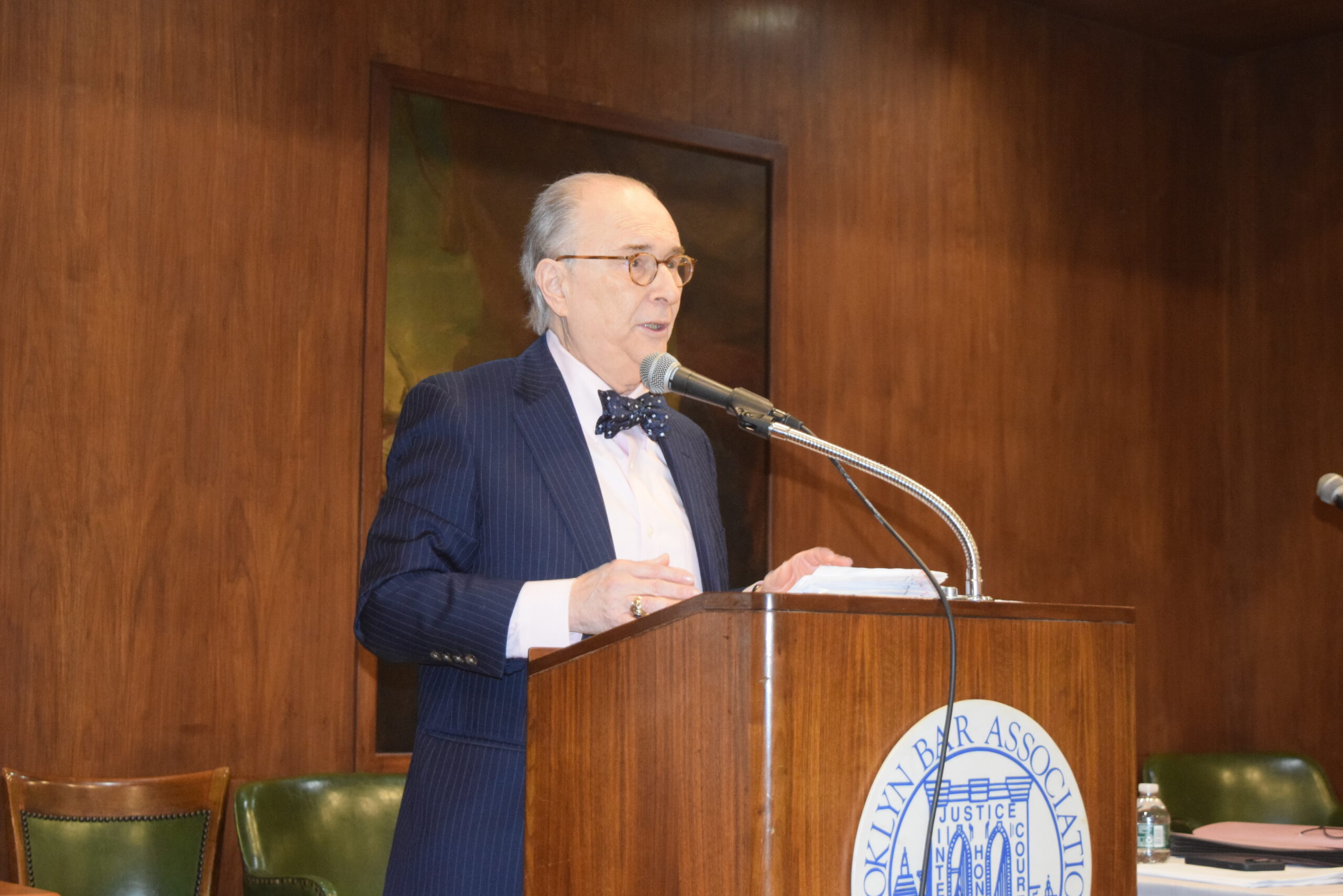
New York Court of Appeals overturns Weinstein conviction, citing misuse of prior bad acts
Justice Kamins addresses Weinstein decision: "Molineux lives"

Justice Barry Kamins discusses pivotal legal principles at a Kings County Criminal Bar Association meeting following a major appellate decision on the Weinstein case. Brooklyn Eagle photo by Barry Kamins
Leave a Comment
Leave a Comment



